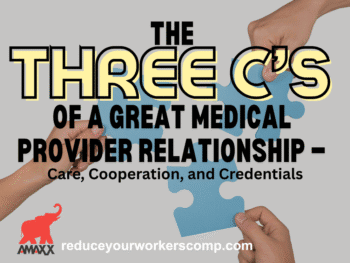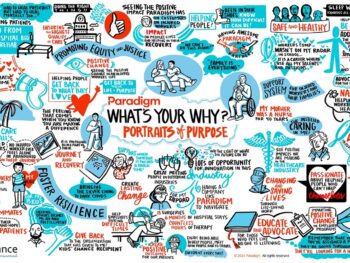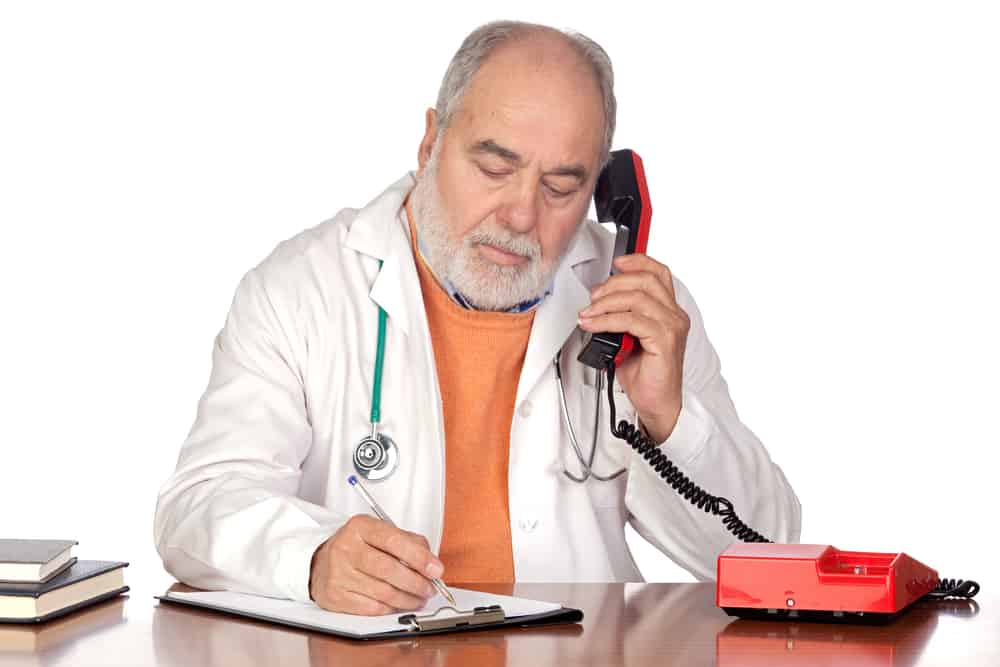The American College of Occupational and Environmental Medicine (ACOEM), working in partnership with the International Association of Industrial Accident Boards and Commissions (IAIABC), has released a guide to help employers and employees, insurers, regulatory agencies, and others in the workers compensation system identify the best available physicians to provide care for people who have suffered work-related injuries and illnesses.
Titled “A Guide to High-Value Physician Services in Workers’ Compensation: How to Find the Best Available Care for Your Injured Workers,” the multi-page document provides practical advice, checklists, and other resources and tools to help identify physicians who adhere to best practices and are most likely to provide the best medical outcomes when treating workers comp patients. (WCxKit)
“Most participants in the workers compensation system want to direct workers to high-quality medical care, but rarely have access to accurate and comprehensive data about physician practice patterns,” said ACOEM Executive Director Barry Eisenberg. “This guide provides a practical alternative – a methodical approach that helps them ask the right questions and find the information they need to ensure excellent care.”
Included is advice for identifying potential candidates, checking credentials and other criteria, learning about a physician’s practice style and general approach to care, and evaluating relevant clinical performance metrics. The guide includes tips for building a long-term relationship with physicians, including a periodic review process.
The guide is a synthesis of ideas and best practices contributed by a multi-stakeholder group of workers comp system experts – practicing physicians, employers, insurers and regulatory agencies – in a summit convened by ACOEM and IAIABC earlier this year in Nashville, Tenn. The meeting is one of several steps ACOEM and IAIABC are undertaking together to raise awareness of issues in worker’s compensation that are diminishing the quality of medical care for injured and ill workers and negatively impacting employers. (WCxKit)
Statistics show that workers comp medical costs per claim are rising much faster than medical costs in general and faster than indemnity costs per claim. Despite the rise in costs, health outcomes within the workers comp system, according to several major studies, are often worse than those obtained under other benefits systems. Studies also show there are inefficiencies in care delivery in the system and a lack of incentives for medical providers to promote effective, efficient and outcomes-oriented treatment as they diagnose and care for injured and ill workers.
“It is our hope that resources such as this guide will encourage workers, employers, insurers and others to increasingly seek out the physicians who are most likely to deliver the best care outcomes, and in the process help drive overall improvement in the workers’ compensation system,” said IAIABC Executive Director Greg Krohm.
Free copies of the guide are available for downloading at the ACOEM Web site (www.acoem.org) and the IAIABC Web site (www.iaiabc.org). At the IAIABC Web site, go to the “News” section; at the ACOEM Web site, go to “Policy & Position Statements,” then “Reference Material.” The guide should be very helpful to employers trying to decrease their workers compensation costs.
Author Robert Elliott, executive vice president, Amaxx Risks Solutions, Inc. has worked successfully for 20 years with many industries to reduce Workers Compensation costs, including airlines, healthcare, printing/publishing, pharmaceuticals, retail, hospitality and manufacturing. Contact: Info@ReduceYourWorkersComp.com or 860-553-6604.
Join WC Group: http://www.linkedin.com/groups?homeNewMember=&gid=1922050/
SUBSCRIBE TO: Workers Comp Resource Center Newsletter
Do not use this information without independent verification. All state laws vary. You should consult with your insurance broker or agent about workers comp issues.
©2010 Amaxx Risk Solutions, Inc. All rights reserved under International Copyright Law. If you would like permission to reprint this material, contact Info@WorkersCompKit.com.


























